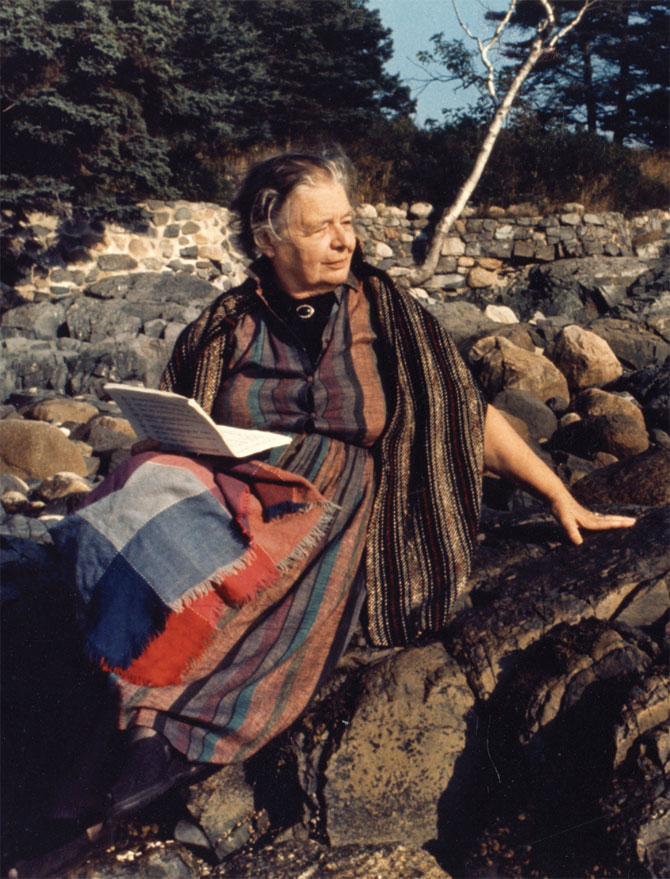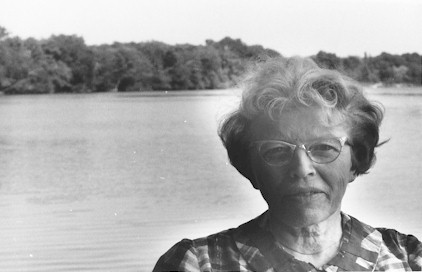EVOLUTION :: NEWS and OPPORTUNITIES
Hello, Exit Strata family! what an exciting year 2013 has already been. It's been a while since we checked in and shared a little update about goings on with our ever-evolving organization, and there's so much to tell you! Read on
POETRY MONTH 30/30/30: Inspiration, Community, Tradition: DAY 25 :: Ana Bozicevic on Marguerite Yourcenar
 disclaimer, from Ana: "if you need a word about why I am featuring a novelist as a poetic influence; her work is poetic to the point of absurdity." et alors...
---
I, YOUrcenar.
None of my friends seem to give a shit about Marguerite Yourcenar. Sure, someone’s father read her in the 80s—probably Memoirs of Hadrian—and there was an interview in the Paris Review with her just then—just at her death. Naming her as an influence has been taken at times (dans mon cas) as an affectation. {This is supposed to be personal, so I’m making it so. But what isn’t? There’s no person, so person’s everywhere.} So this is what I can tell you about Marguerite Yourcenar & “I” (“L’être que j’appelle moi”/the person I call myself, as she puts it):
That
- it was my father who introduced me to her. And started me toward owning most of her books.
- “I” passed her novella of incestuous love, Anna Soror, around my Croatian high school like the mind-porn that it sure was.
- “I” translated parts of her Fires, a reimagining of antique myths—especially the one about Sappho—and made an offering of them to a young woman. This was my idea of courtship; should’ve read Plato’s Lysis first.
- when “I” had a blog for four years, called Quoi? L’Eternité. it was named thus after Yourcenar’s memoirs, not Rimbaud. She also introduced me to Yukio Mishima.
That’s enough now. But from a current vantage, it’s incredibly ironic that Yourcenar’s writing should have served as a queer f-to-f offering – considering the fact that though she quite likely was queer, she was also very oblique about it – what I’ve heard called “old school.” Here’s a passage from that Paris Review interview cited here without value judgment – neither for Yourcenar nor her interviewer and his “deviance:”
disclaimer, from Ana: "if you need a word about why I am featuring a novelist as a poetic influence; her work is poetic to the point of absurdity." et alors...
---
I, YOUrcenar.
None of my friends seem to give a shit about Marguerite Yourcenar. Sure, someone’s father read her in the 80s—probably Memoirs of Hadrian—and there was an interview in the Paris Review with her just then—just at her death. Naming her as an influence has been taken at times (dans mon cas) as an affectation. {This is supposed to be personal, so I’m making it so. But what isn’t? There’s no person, so person’s everywhere.} So this is what I can tell you about Marguerite Yourcenar & “I” (“L’être que j’appelle moi”/the person I call myself, as she puts it):
That
- it was my father who introduced me to her. And started me toward owning most of her books.
- “I” passed her novella of incestuous love, Anna Soror, around my Croatian high school like the mind-porn that it sure was.
- “I” translated parts of her Fires, a reimagining of antique myths—especially the one about Sappho—and made an offering of them to a young woman. This was my idea of courtship; should’ve read Plato’s Lysis first.
- when “I” had a blog for four years, called Quoi? L’Eternité. it was named thus after Yourcenar’s memoirs, not Rimbaud. She also introduced me to Yukio Mishima.
That’s enough now. But from a current vantage, it’s incredibly ironic that Yourcenar’s writing should have served as a queer f-to-f offering – considering the fact that though she quite likely was queer, she was also very oblique about it – what I’ve heard called “old school.” Here’s a passage from that Paris Review interview cited here without value judgment – neither for Yourcenar nor her interviewer and his “deviance:”
POETRY MONTH 30/30/30 : Inspiration, Community, Tradition: DAY 23: Lauren Marie Cappello on Lorine Niedecker
 The way it happens with water is like this: The beginning is unclear, maybe it happened first with rain, maybe the clouds made water from vapor or notes on dreams. Also, there is the way the water moves; it is sure of itself, searching the lowest point - steady in the breaking down of it retaining its structure to the smallest division. It asserts itself in seeking to fill its surroundings, tracing a path from one substance to the next leaving great distinction between where it is and where it is not. Lorine Niedecker’s poetry contains the essence of the water she lived by, moving across one phenomenon, seeking another in connection like a river, leaving a trail on the small portion of those places her poetry touches.
The way it happens with water is like this: The beginning is unclear, maybe it happened first with rain, maybe the clouds made water from vapor or notes on dreams. Also, there is the way the water moves; it is sure of itself, searching the lowest point - steady in the breaking down of it retaining its structure to the smallest division. It asserts itself in seeking to fill its surroundings, tracing a path from one substance to the next leaving great distinction between where it is and where it is not. Lorine Niedecker’s poetry contains the essence of the water she lived by, moving across one phenomenon, seeking another in connection like a river, leaving a trail on the small portion of those places her poetry touches.
Niedecker's work places the objects before the reader; it is in the selection of them by this poet that the scene is imbued with meaning. All else is relative. Throughout the objectivist movement, most avoided metaphor in their poetry. They took to the style of portraying the happening as it was with a feeling that in its conveyance to the audience the intended emotion would be transmitted. Niedecker’s work is a hybrid of objectivism blended with her interest in surrealism, which was contained and bubbling just below the surface. In a letter to Monroe in 1934, Lorine wrote"…the whole written with the idea of readers finding sequence for themselves, finding their own meaning whatever that may be, as spectators before abstract painting."




